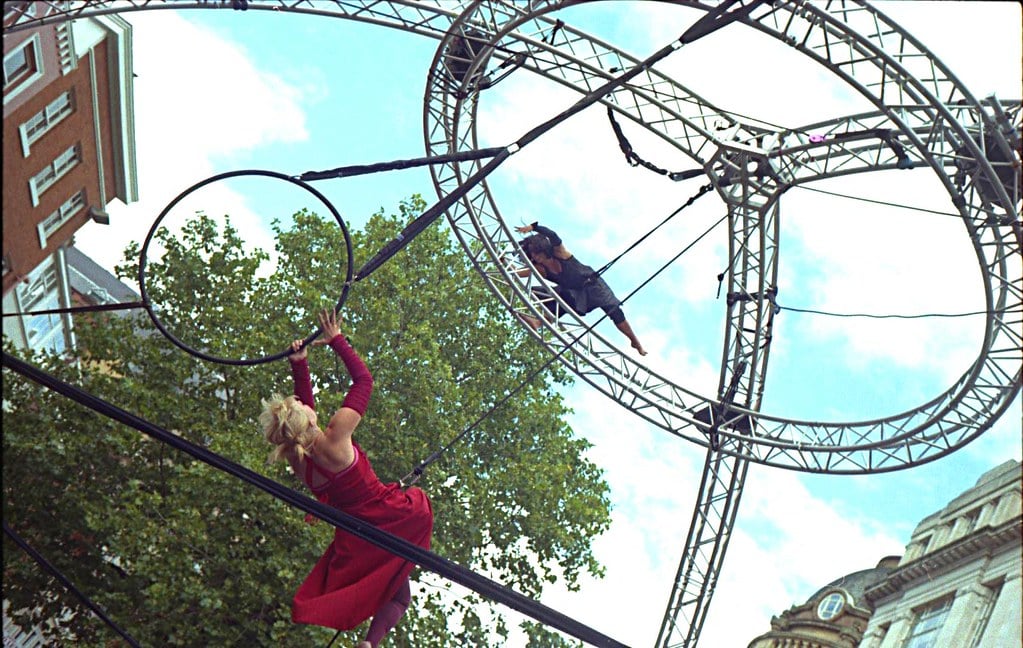
A performance featuring Candoco Dance Company, which includes disabled and non-disabled performers, as well as Scarabeus Aerial Theatre.
Editor’s comment: who decides what ‘quality’ is?
The lack of traction and success for BME-led and disabled-led organisations deserves our attention, says Amanda Parker. Is there something for ACE to explore around who is judging ‘quality’?
This week’s AP report, ‘Who gets ACE funding?’, is an example of how data can give form to what might otherwise remain a nebulous feeling that something’s not quite right.
It’s a fascinating insight that invites more questions: what does the success rate look like regionally? Which BME-led organisations are most – or least – successful? And what does this look like if we apply an intersectional approach to the data? It would be interesting to see what the odds are for neuro-divergent black women based in South West England, for example.
ACE are understandably reluctant to comment on the success rates of LGBT-led organisations. However, it's not this group's success that we need to interrogate – especially given this year's Pride Jubilee-related events, it's a cause for celebration.
What deserves our attention is the lack of traction and success for BME-led and disabled-led groups. Do organisations need to demonstrate more robust management and financial capability? Or are diverse-led organisations less likely to call on the help that’s offered by ACE in building their case?
What’s particularly concerning is those applications that fall short in meeting the ‘quality’ criteria. Is there something for ACE to explore around who is judging ‘quality’?
I’ve yet to meet the individual who finds using the grants application portal Grantium a smooth process. But there’s clearly work to be done to reassure everyone who values a fair and inclusive sector that there isn’t more to making a successful application than meets the eye.
If you have questions or proposals to make, why not feed it into shaping ACE’s 10 year strategy?
Join the Discussion
You must be logged in to post a comment.